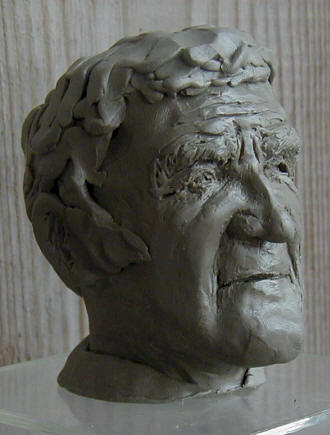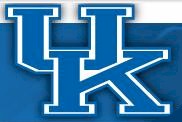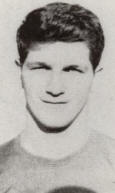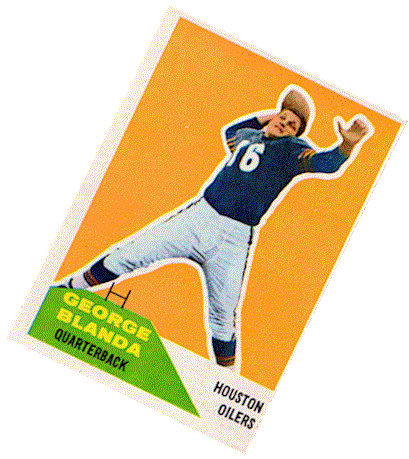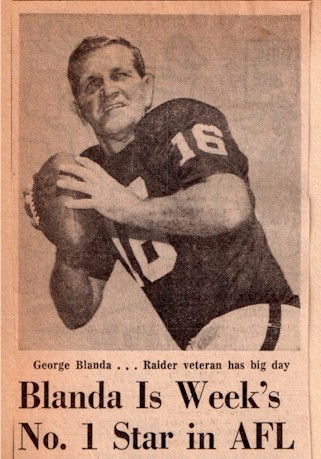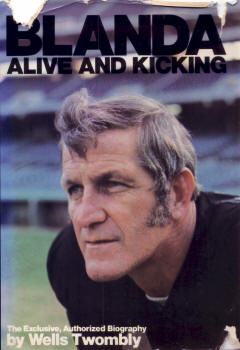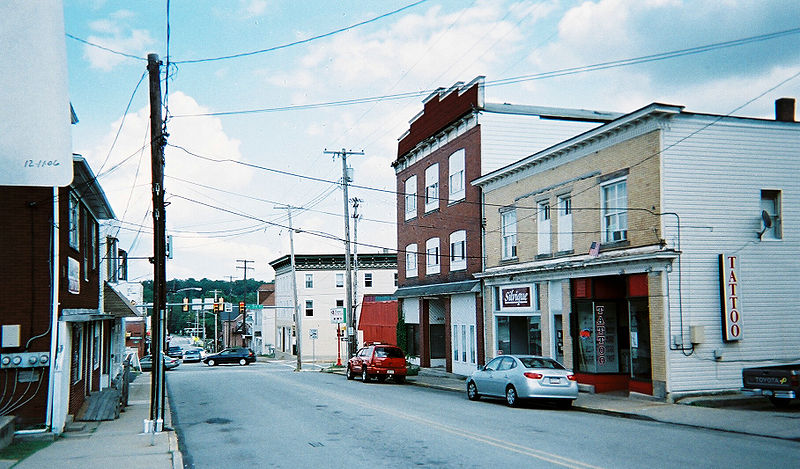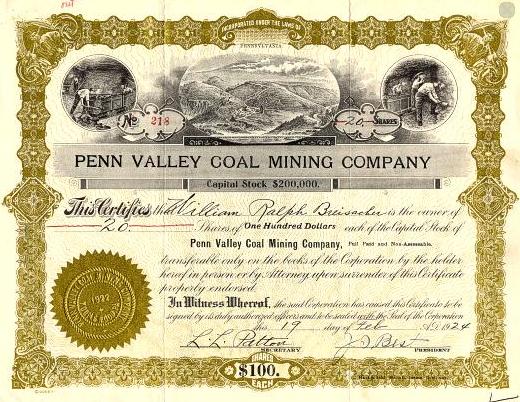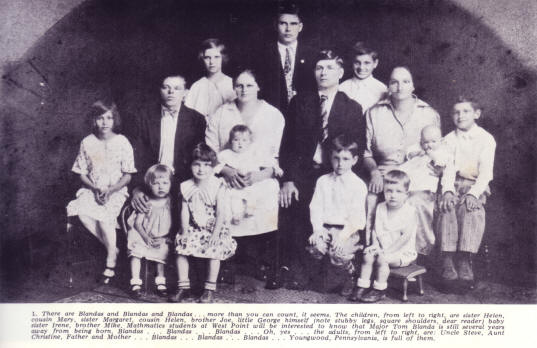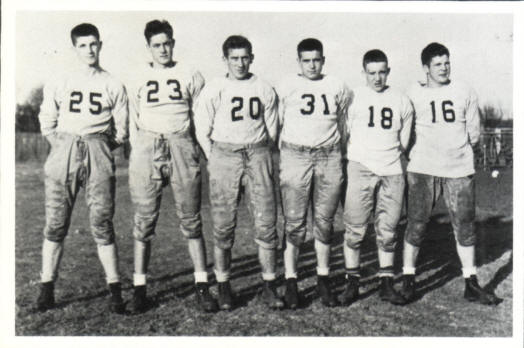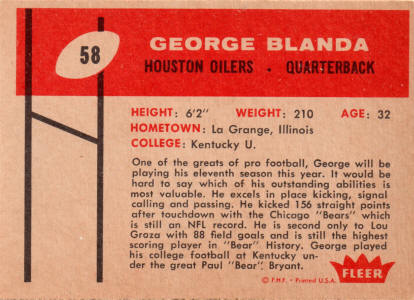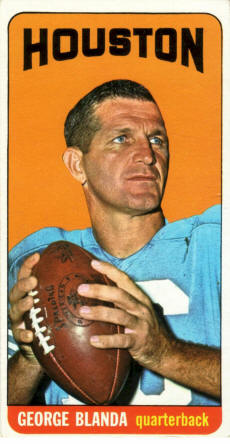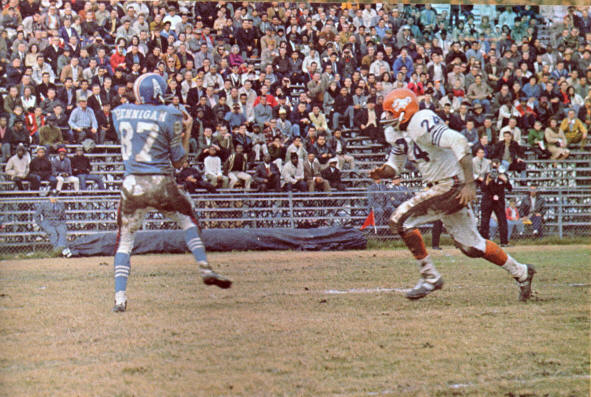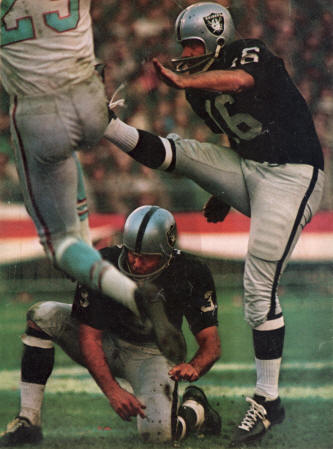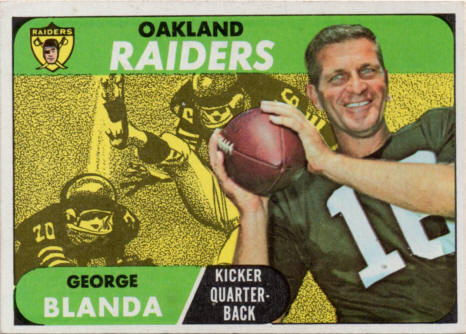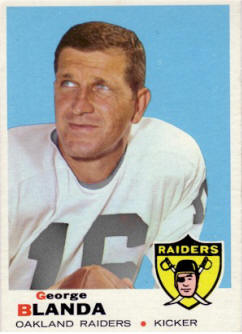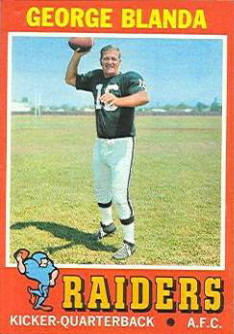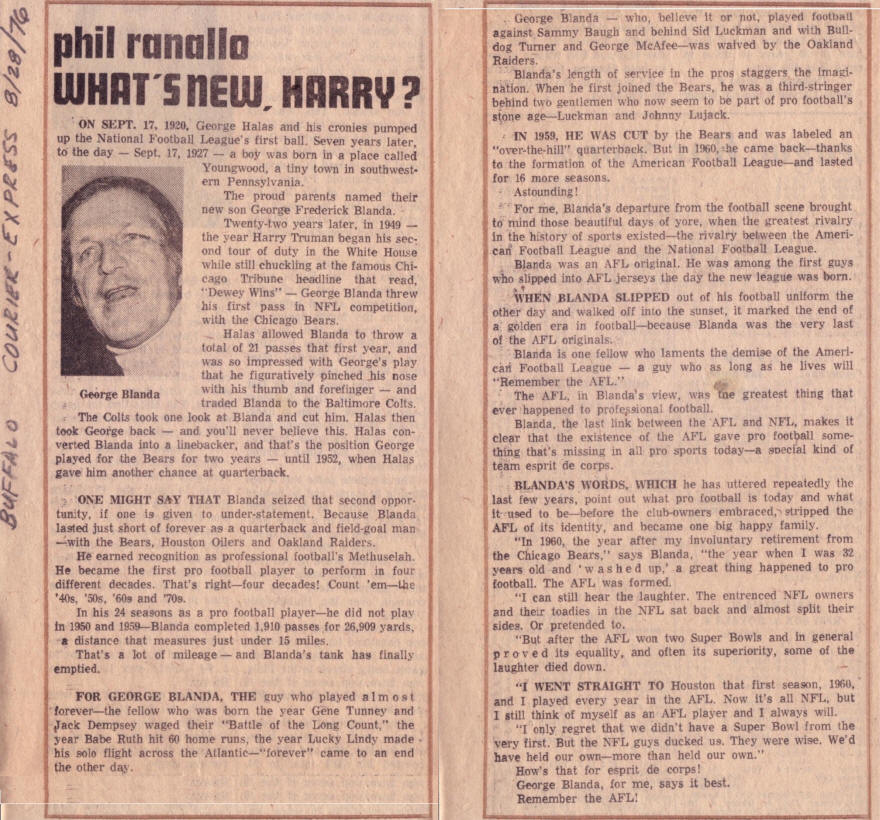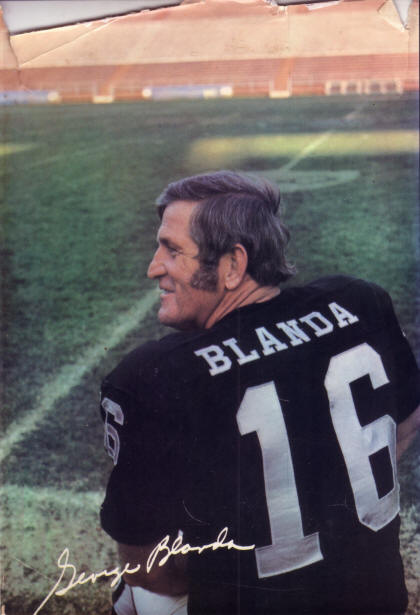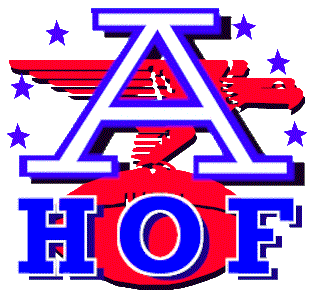|
From the
first exhibition game of the 1949 season, when an injured
Johnny Lujack started after Blanda had out-practiced and
outplayed him in training camp, Blanda distrusted George
Halas.
Then,
when he made the team, Halas demanded his $600 signing bonus
back! In spite of promises by Halas, Blanda did
not start a regular season game until 1952. He was a
regular starter in 1953, but was injured in 1954 and
thereafter was used primarily as a placekicker.
Halas "was
too cheap to even buy me a kicking shoe."
Blanda often
said that by
"about 1954"
the game had moved beyond Halas.
Halas' conservatism, on
the field and off, was reflected in the entire NFL and was a
main reason that a new major league of Professional Football
was formed ~ the American Football League, where Blanda
found a home, not only as a kicker but as a starting
quarterback for the Houston Oilers.
In the AFL's first
season, Blanda led his team to the Eastern Division title
with a 10-4 record
with the likes of
Billy Cannon,
Jim Norton,
Charlie Tolar,
Bob Talamini
, and
Charlie Hennigan; whose names would have
been legend if they had played in the other league.
They went aganst the 10-4
Los Angeles Chargers in the first
AFL title game on New Year's Day, 1961. The Oilers
defeated the Chargers 24-16, with Blanda accounting for all
the scoring with 3 touchdown passes, 3 PATs, and an 18 yard
field goal.
|
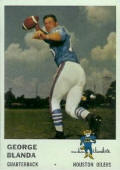 |
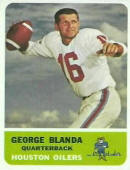 |
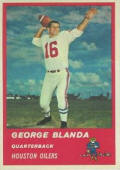 |
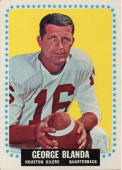 |
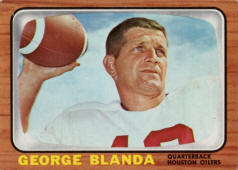 |
|
|
|
|
|
|
|
|
|
In 1961 the Oilers "fell" to 10-3-1. During that season, Blanda
passed for 464 yards in a game against the
Buffalo Bills, a game in
which Charlie Hennigan gained 232 yards on just nine receptions.
Later that year, Blanda passed for 416 yards against the New York
Titans. That year, their championship game opponents were
again the Chargers, who had moved to San Diego and improved their record
to 12-2. The Oilers prevailed once more, 10-3, but even though it
was a low scoring game, Blanda again accounted for all of Houston's
points with a touchdown pass, a PAT and a 46 yard field goal.
The 1962 AFL season
saw the Oilers improve to 11-3-1 and take their third straight Eastern
Division title, a feat matched only by the 1964-1966 Bills.
Playing in their third AFL Championship game, in what remains the
longest league championship game in Professional Football history, the
Oilers faced the 11-3 Dallas Texans. The Texans were up 17-10 at
the half, but Blanda rallied the Oilers to a 17-17 tie, including a
touchdown pass, a PAT and a 31 yard field goal. Regulation
time ended. At the start of the first overtime, the Texans'
Abner Haynes
said "We'll kick to the clock", and the rest is history. Blanda
threw 46 passes, completing 23, but with five interceptions, one coming
at the end of the first overtime. After the start of the second
overtime, the Texans drove close enough to kick a field goal and ended
Blanda's dream of a third straight AFL title, winning 20-17.
The reaction of the
establishment to Blanda's success was typical. George Halas said:
"The American Football League can't be anything but a Mickey Mouse
League. How can it be anything else? Isn't George Blanda a
first-string quarterback over there?"
And Pete
Rozelle's lapdog, Tex Maule, wrote: "No player on the Houston Oilers
could break into the starting line-up of any of the top four teams in
either division of the NFL, and only one or two could break into the
starting lineups of ANY team in the NFL. The only reason George
Blanda, who threw only 50 touchdown passes in ten years in the NFL, can
hope to succeed in the American Football League, is because he can
expect to find his receivers less adequately covered."
As usual, Maule was wrong. Blanda threw only 48 td passes
for the Bears. But then again, he threw only 988 passes in all for
them, an attempt-to-td ratio better than that of Bart Starr.
Houston didn't make
the playoffs during the remainder of Blanda's time there, but he
continued to complete passes and score points. I recall a 1964
game at War Memorial Stadium where Blanda set a pro record with 68
passes against the Bills, completing 37 with three picks. In a
memorable game at the same venue in 1966, Blanda was hampered
by serious tendonitis in his throwing arm. The Oilers were held to 24
yards rushing in a virtual monsoon that made mush of the field. Blanda somehow threw 54 passes for 303 yards and two touchdowns, and
kicked two PATs and a 47 yard field goal, only to lose 20-17.
He was a
staunch American Football League supporter. Even as recently as
2009, on the Showtime TV series
Full Color Football ~ The
History of the American Football League, Blanda took a swipe at "pro
football" Hall of Fame selectors, pointing out that one reason Hall of
Famer Willie Brown was cut by the early Oilers was that he couldn't
cover Houston's Charlie Hennigan in scrimmages. Blanda noted that
in the last game of the 1964 season, against Denver, Hennigan needed
eight catches to equal Bronco Lionel Taylor's pro record of 100 catches,
set
in the 1961 season. Blanda pointed out that Brown was playing for
Broncos in that game, and that Hennigan caught NINE passes
against him to break the record. The point? Brown is in the
Hall of Fame: why isn't Hennigan? Below is a shot of Hennigan
making his 101st catch against Brown ,
from the book Touchdown! by George Sullivan. |
